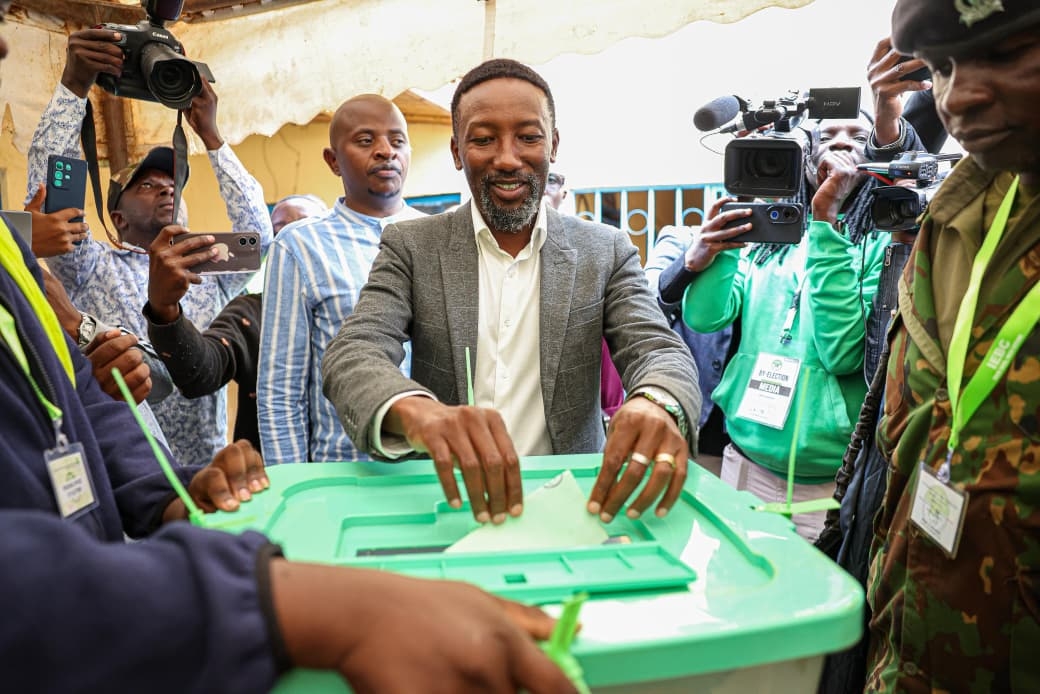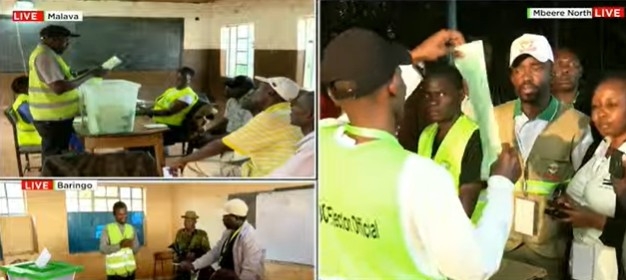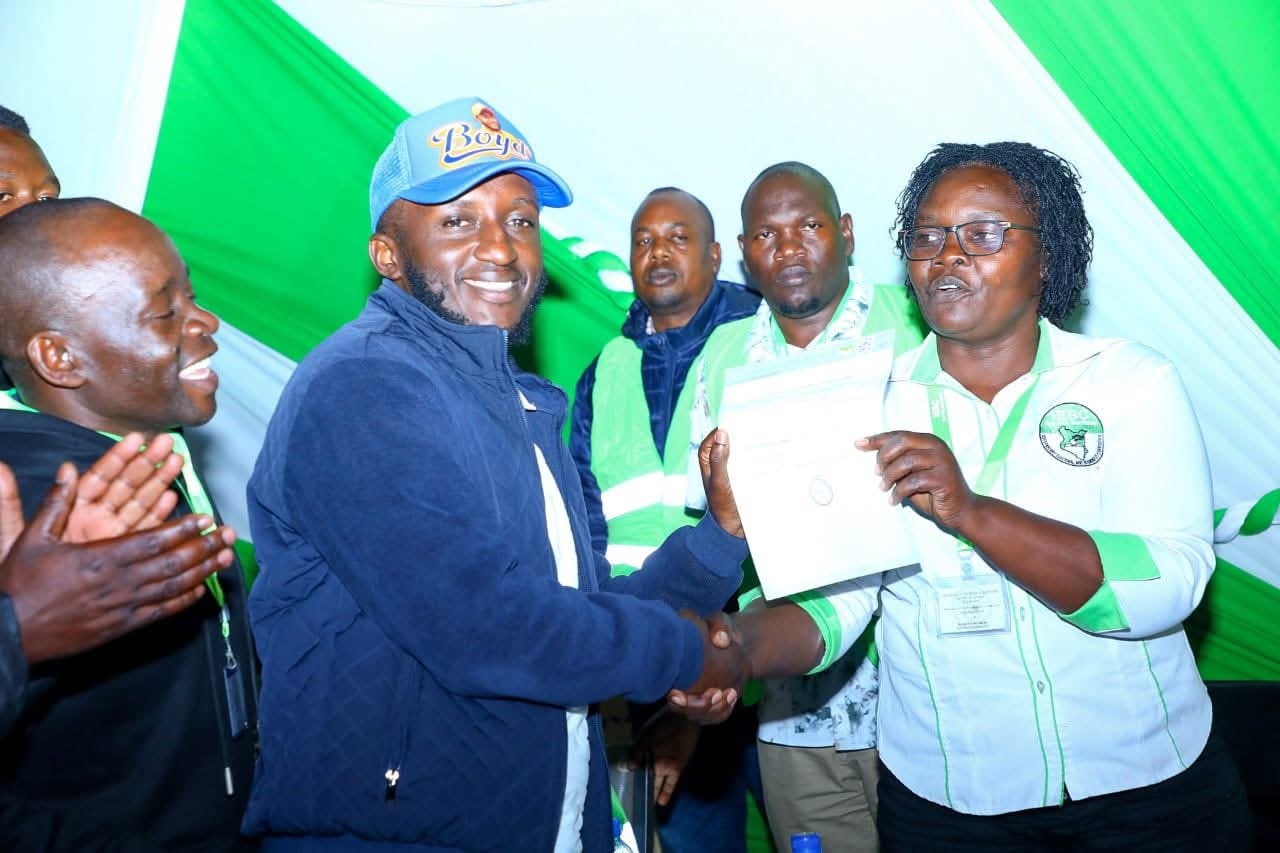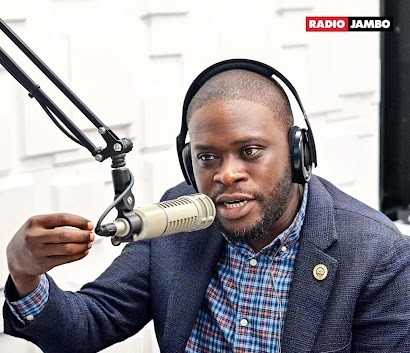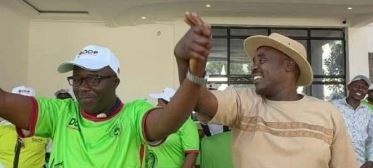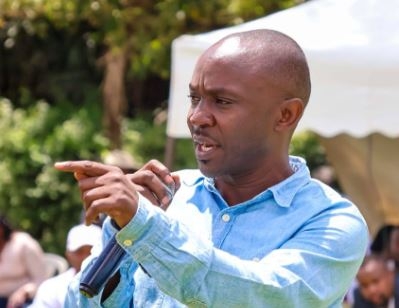Around the country, Bridge International Academies are known for their unique olive-green corporate colour code, which brings out the school’s overbearing presence.
Since their establishment in Kenya in 2007, the schools have slowly evolved to epitomise success in managing low-budget educational institutions in mostly rural settings, with good results in academic and extracurricular performance.
A first-time visitor to any of the Bridge academies is met with an impressive culture of orderliness and organisation to detail, as the Star learnt from visiting one of the Bridge academies at Ujamaa in Likoni, Mombasa county.
The paths are swept clean, beautifully tended hedges line the classrooms and pupils’ schoolbags are neatly placed on hooks outside their classrooms, ensuring pupils only have the specific books required during a particular lesson on their desks.
A water tank is placed next to the washrooms, a gesture that cannot overstate the need for pupils to wash their hands after visiting the washrooms.
The schools also strictly forbid corporal punishment but have been able to instil discipline among pupils, most of whom evidently feel privileged to be part of the Bridge family, judging from their enthusiasm in participating in the schools’ various activities.
At the centre of its hailed success in providing an innovative approach to education, Bridge prides itself in having achieved 100 per cent pupil-teacher contact time, which is a paramount element in the learning process.
NO CLASS UNATTENDED
Bridge Schools curriculum specialist Faith Karanja says essentially, no lesson passes unattended at any of their academies countrywide for whatever reason.
The institution has embraced technology in managing its teaching staff, teaching content and style, as well as pupils’ data, thereby imparting a common positive character for its schools throughout the country.
Karanja says the schools have a substitute teacher on standby in case a teacher calls in sick.
“No class is left unattended. Our academy managers do not have classes to enable them concentrate on management, which is critical in achieving our objectives,” she says.
The Bridge curriculum panel consists of 19 resourceful staff, who are specialists in various teaching subjects and areas, including ECD.
The panelists visit the academies to test and review the efficiency of the learning materials they prepare to ensure what they develop suits the needs of teachers and learners well.
They are also responsible for developing teaching content that is aligned with the newly introduced competency-based curriculum, and they also prepare learning materials, including flash cards, charts, posters and publishing of relevant books.
Karanja says the institution has invested in digital teacher guides to help their teaching staff in their day-to-day work.
The teacher guides are tablets that have been installed with teaching materials and can be updated from time to time.
The Bridge management can tell where a specific teacher is at any given time once they log on their tablets.
The devices also have teaching content, which comes to the teacher every day through a mobile phone hotspot available at every academy.
The teachers synchronise their devices to the hotspot to receive updates.
“Initially the teaching guides used to be in paper form, and it was cumbersome and bulky to distribute and use,” Karanja says.
“Now with the digital versions, our teachers are able to refer back to what they taught last and what they will teach in future and prepare adequately.”
The world is driven by technology, and we cannot claim to be educating our children if technology is not at the core of that process.”
FUN AND EASY TEACHING
Karanja says the teacher guides have unique features that make the learning and teaching process both fun and easy to manage on the part of academy managers.
These include a centralised admission register for all pupils across the country and a class attendance register, where a roll call is taken digitally and uploaded in the clouds to be accessed by the management, which also uses the data to understand trends, dynamics and challenges encountered in the various academies.
The guides also assist teachers to post assessment results after pupils undertake exams, which are mostly uniform across all the academies countrywide.
This way, we are able to monitor any discrepancies because our students sit common exams countrywide, and if their performances vary greatly, either generally or in any subject, we are able to learn what might have gone wrong and address the underlying problem.
The schools, both in the region and nationally, access the same content, which is developed centrally by a panel of curriculum specialists with qualifications in various subjects.
“The world is driven by technology, and we cannot claim to be educating our children if technology is not at the core of that process,” says Fred Owaga, academy manager at Bridge Ujamaa.
Owaga says the most interesting thing about the digital teacher guide is the requirement for teachers to tap their identity before and after every lesson with feedback delivered to their respective academy managers in real time.
“I am able to verify if a teacher is in class for their lesson. There is no way they can skip a lesson arbitrarily, as is the challenge with most of our public schools,” Owaga says.
He says his teachers have taken the technology positively, as it quickens the lesson after previewing what the next lesson entails and topping it up with extra material after doing research.
“It contributes positively to our performance. In the last three years, we have posted impressive mean scores in KCPE exams, with an average mean score of 330 marks out of 500,” he adds.
EXCEPTIONAL RESULTS
In last year’s KCPE results for 15 academies in Mombasa, four pupils scored over 400 marks, while over 1,000 scored 300 marks and above.
In 2017, three scored over 400 marks, while over 1,000 scored 300 marks and above.
Owaga says the schools have lean classes with a manageable number of around 25 pupils per class, which ensures a teacher can reach out to all the pupils individually.
Some of the residents whose children attend school at Bridge Ujamaa Academy say they are happy with the progress their children are making academically.
“We feel privileged to have our children attend school here. We like the organisation of the school and its activities,” said Halima Tengeza, a parent and Mwabahe village elder.
“Some of us would not mind attending ngumbaru (Swahili for adult education classes) in this institution so we can master the English language like our children.”
Bridge Academies Mombasa area manager Brian Baraza says he manages 15 academies spread over Mombasa, Kilifi, Kwale and Taita Taveta counties.
He says the schools have managed to stand out from other private schools because of their approach, and the Mombasa region has been expanding with a population of over 3,000 pupils attained within three years.
“Our approach is more of collaboration with the communities where we operate. We offer education to pupils and at the same time engage the community in various uplifting programmes,” Baraza says.
Baraza says his priority and that of the Bridge family is to balance between the provision of quality education without compromising on the standards and available facilities, while maintaining affordable school fees.
The average fees for most academies is Sh2,500 per term, which is inclusive of printed homework books, weekly assessments, practical lessons and textbooks, which are provided by the school through partnerships with donor organisations.
The school is keen on co-curricular and extracurricular activities to ensure they churn out all-rounded pupils.
Baraza says academies in his area have a tough Taekwondo team, which is the national reigning champions in the Junior Open Taekwondo championships.
The team has represented Kenya in International Junior Taekwondo championships in Tanzania and Rwanda in the past two years.
In 2017, the Bridge music team sailed to the national festivals, where they got a chance to perform at the presidential gala in Nakuru.



